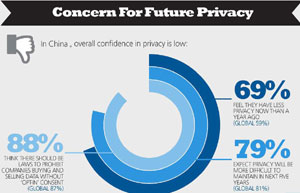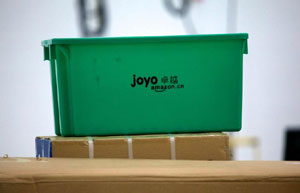Online direct sales companies face a bumpy road in transforming themselves into e-commerce platforms after a third-party merchant was caught selling fake lubricants on the site of China's second-largest e-commerce company.
ExxonMobil (China) Investment Co Ltd said in a statement on Wednesday that a bottle of automotive lubricant with the company's trademark was purchased on JD.com on June 13. Upon laboratory testing, the product was deemed to be counterfeit.
Beijing-based JD.com responded through its official Weibo account, a Twitter-like micro blog service, that the fake product was sold by a third party on its open platform, which lets vendors sell directly to JD's registered users.
 |
The accusation has triggered widespread discussion, as the US-listed JD.com is known in China for selling genuine, high-quality products online.
Mo Daiqing, a researcher with the China E-Commerce Research Center in Hangzhou, said, "I think both JD and the third-party vendor should take responsibility for selling fake products."
JD should set a higher threshold for merchants who want to use its online platform, and the merchants themselves should also be required to provide quality products and services, said Mo.
As an increasing number of business-to-customer companies are setting up online platforms for third-party merchants, tackling the problem of fake products and poor service has emerged as a major challenge for e-commerce companies like JD.
Jane Zhang, principal research analyst with technology research Gartner Inc, said that setting up an open platform is a "coin with two sides".
"On one hand, self-owned B2C e-commerce companies can earn more money because they charge fees to let the third-party merchants use their platforms, and they can enrich their product portfolio with the products sold by those merchants," Zhang said.
For example, JD has built its business empire through selling consumer electronics. But as the company grows, it has become eager to expand into new categories, such as clothing and food.
"The downside is that they have to deal with the fake products, and it is impossible to take down all the fake products due to the large number of merchants online," she said.
"Only when an open platform is big enough and brings enough turnover for merchants does it have the power to keep fake products to a Tmall has very strict regulations on merchants, including shutting down offending online stores.
But vendors continue to flock to Tmall because the platform is the largest B2C market and attracts the most online traffic, she said.
 |
 |
| Chinese online shoppers least aware of privacy |
